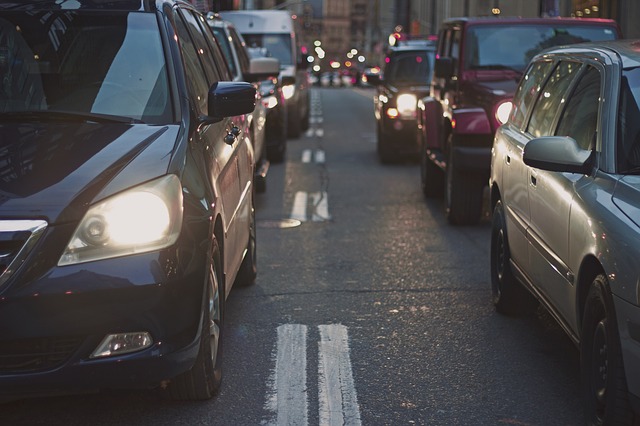
The slide comes despite efforts from both President Donald Trump and the Federal Reserve to quell investors' concerns over the economic fallout of the coronavirus pandemic. In addition to the Dow, the S&P 500 also joined the Dow in the bear market, plummeting by 9.5 percent. Nasdaq was also routed, dipping 9.4 percent by closing bell.
“The pandemic’s economic disruptions threaten to trigger a global financial crisis that will be worse outside of the United States than 2008-2009,” stated David Levy, chairman of the Jerome Levy Forecasting Center on Thursday.
Slide continues despite aid from the Fed
The Fed offered the indices a brief respite during the trading day, announcing a ramp-up of its overnight funding operations to more than $500 million on Thursday. The Fed will also offer more repo operations totaling $1 trillion on Friday. This is on top of it expanding the types of securities it would purchase with reserves.
Despite the Fed's attempts, however, stocks quickly traded back toward their session lows as investors waited for more aggressive measures to support the economy and address the outbreak.
“These changes are being made to address highly unusual disruptions in Treasury financing markets associated with the coronavirus outbreak,” said the statement from the New York Federal Reserve, the branch which conducts these operations on behalf of the Fed.
The Fed's infusion of liquidity came as the World Health Organization officially designated the coronavirus outbreak as a pandemic, as the virus spread to over 100 countries, infecting well over 100,000 people.
On Thursday, the sell-off went from bad to worse that trading was halted after the open for 15 minutes. This was due to the markets hitting the mandated “circuit-breaker” threshold use by U.S. exchanges. The halt, however, did nothing to slow the descent as the Dow went on to notch the fifth-worst decline in its history, according to FactSet.
“We are going into a global recession,” said Allianz's chief economic adviser Mohamed El-Erian on CNBC’s Squawk Box. “After what’s been happening the last few days, we are going to see a spread of economic sudden stops.”
El-Erian believes that selling won't stop until the bear market goes down to 30 percent. “The trouble with economic sudden stops is it’s not easy to restart an economy,” said E-Erian.
Investors wary of new White House measures
On Wednesday night, President Trump made a televised address from the White House, where he stated that travel from certain areas of Europe affected by the coronavirus to the U.S. would be suspended for 30 days. In addition to this, he also announced plans for $50 billion of low-interest loans to affected businesses while also suggesting a delay in the April 15 tax filing deadline. Despite this, the new measures failed to assuage the fears of panic-stricken investors. At worse, it may have actually stoked their urge to sell.
“This effectively kicks the issue to Congress,” stated Ernie Tedeschi, policy economist for Evercore ISI.
Lack of consumer spending is driving investor fears
The biggest driver of the slide into the bear market is investors' concern over the lack of consumer spending. The coronavirus is causing consumers to stay at home which results in them spending less.
“The crux of the angst investors are feeling as the coronavirus spreads surrounds what might happen to consumer spending,” stated Scott Wren, senior global market strategist at Wells Fargo Investment Institute.
“It has been the U.S. consumer who has been driving the recovery bus during this long expansion,” added Wren, referring to the record-setting 11-year bull-run that the Dow experienced coming out of the 2008 financial crisis.
Prior to this, most economic analyses had assumed that the biggest impact on the U.S. economy would come from global supply lines being disrupted due to the lockdowns in China which would leave U.S. manufacturers and retailers without the goods they need.
However, the spread of the virus in the U.S. has increased calls for more social distancing and having more people work from home. As a result, analysts and investors are now realizing that fighting the outbreak requires a temporary economic slowdown as people quarantine themselves.
Industries linked to travel and entertainment are bearing the brunt of the economic slowdown. The airline industry is expecting revenue losses as high as $113 billion as people cut down on flying and governments restrict travel from virus struck countries. This is on top of some airlines having to spend on “ghost flights” -- flights with little or no passengers -- just to maintain their airport slots on certain valuable routes. Cruise lines have also been hit. The industry has been in the spotlight from the early days of the outbreak as a number of cruise ships, including the Grand Princess that's currently anchored just off San Francisco, have been quarantined after they reported outbreaks of the virus among their passengers.
The entertainment industry is also taking losses from the virus. A number of high profile movies have had their release dates moved as studios expect audiences to avoid movie houses during the outbreak. Meanwhile, a number of theme parks such as those owned by Disney and Universal are also closing due to the expected decrease in attendance as people move to avoid crowds.
Coronavirus may trigger a debt bomb
The lowered consumer spending has led some analysts to warn that the outbreak may trigger a debt bomb. For years, low-interest rates have encouraged companies to keep borrowing money. According to a report by the Organization for Economic Cooperation and Development (OECD), total outstanding debt among corporations other than financial institutions had hit a record high of $13.5 trillion worldwide by the end of 2019. With this high amount debt, analysts have been warning that a crisis could happen with the right trigger.
“We have been always saying that we are sitting on top of an unexploded bomb, but we don’t know what is going to trigger it,” stated Emre Tiftik, director of the Washington-based financial industry trade group Research for Global Policy Initiatives at the Institute of International Finance. “Can the coronavirus be a trigger? We don’t know. Maybe.”
As lower consumer spending causes profit forecasts to drop, the fear now is that some companies may end up struggling to make their debt payments or even defaulting on them. This could, in turn, lead to lenders tightening credit for everyone, not just the companies involved.
Not everyone is convinced that a debt bomb will be triggered. “The prophets of doom who thought that more debt was more risk have generally been wrong for the last 12 years,” stated Nicolas Véron, a senior fellow at the Peterson Institute for International Economics in Washington. Companies such as Apple, Google and Facebook have large cash reserves, making them essentially immune to the crisis.
For their part, central banks have been leaping into action to stem the tide, including increasing the amount of money provided to banks for overnight borrowing and extending repos. However, the continued slide of indices like the Dow seems to indicate that these moves are not enough.
Sources include:
Please contact us for more information.























